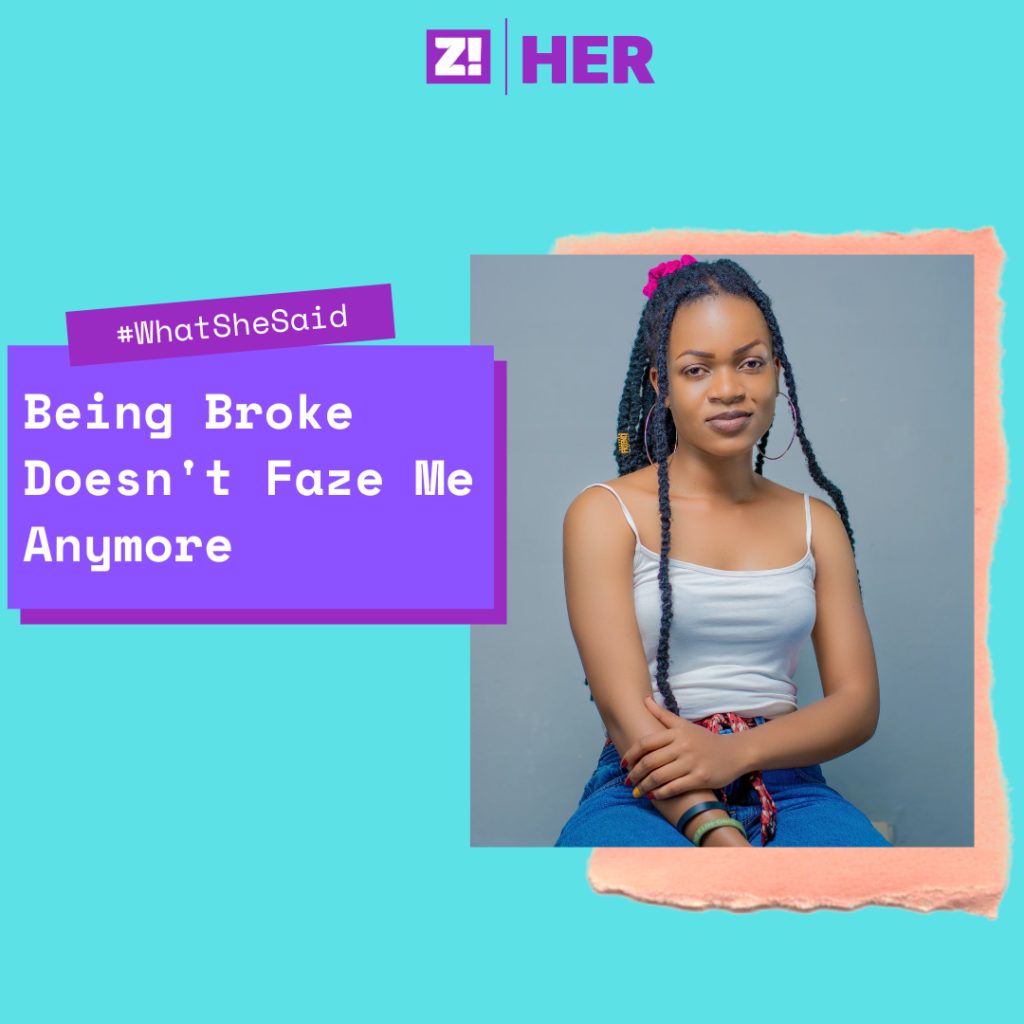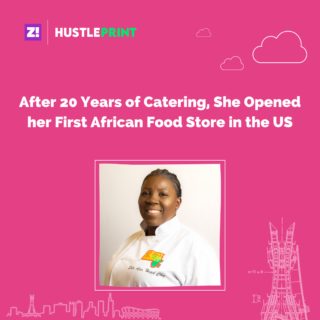Navigating life as a woman in the world today is interesting. From Nigeria to Timbuktu, it’ll amaze you how similar all our experiences are. Every Wednesday, women the world over will share their experiences on everything from sex to politics right here. This is Zikoko’s What She Said.

Today’s #ZikokoWhatSheSaid subject is a 28-year-old Nigerian woman. She talks about living alone in Accra, how she ended up picking unemployment over money and why money cannot be all there is to happiness.
What makes life interesting for you?
Money. My views about it have changed over time though. Money was never a motivation for me, but it used to be the only quantifiable thing that let me know I was doing alright in life. When I had it, I knew I could relax.
And I was earning a lot of it at 27 in Accra. Everyone said I looked happier there.
Were you?
I was alright. Ghana was a vibey place, and I got to meet a lot of people. But moving to a new country was also quite lonely. My friends thought I was happy because I posted a lot online. But that was all I could do because I had to go out often to make friends, connect with people — anything to get out. I guess my social media page created that facade of being much happier.
The part of my life that really made me happy was the growth I’d made in a year through therapy. That made it easier to be in a new country alone.
What changed in a year?
I was depressed for a really long time, probably since I was 18, and I didn’t realise why until I started to talk through things that had happened. I let a lot of the harassment I experienced as an engineering student slide during an internship. I was a quiet 18-year-old. You could literally put your finger in my eyes, and I wouldn’t say anything. And so men in their 30s were pestering me to date them.
Wow. I’m sorry that happened.
Thanks. I thought it was normal. But therapy helped me be more objective with my life. I understood that I needed to be a lot more vocal about how I’d experienced men at a young age. I also understood how sensitive I was as a person and how easy it was to let things slide. The sessions made me aware of myself. That’s how things slowly got better.
That sounds great.
It was. My life would have been richer if I started much sooner. Sometimes, I’d think my life was horrible without an exact reason. I’d just be sad. But when I started treatment, I realised some of those emotions had to do with having PMS. I never knew that. If I did, I would have taken better control of certain situations.
I think understanding more about myself also prepared me for when I decided to quit my job without a plan. I’d been working at She Leads Africa since I was 25. I was already leading a team by the time I quit.
And you quit without a plan?
LOL. Yeah.
After two years, I’d hit a plateau. When I left, I ended up moving to Accra. Nothing about my move was exotic. I quit my job and was out of work for five months. Accra was literally my only option at the time. If I had an offer in Ekiti. I would have taken it.
How was your move?
Accra was good for me. I always walked around with a chip on my shoulder about not being able to afford things I’d like. In Accra, I saw people with barely a quarter of what I had, hustling and making the most of it. That was something I needed to see to stop overthinking little things like saving to buy the kind of phone or laptop I wanted. People had bigger issues.
How long did you stay in Accra?
A year. I quit the job in Accra and moved back to my parents’ home in Nigeria because I was offered a marketing role at a tech company. I’d worked as a program manager at my last job, but I always wanted to work in tech. Here, I was earning the most money I’d ever made. I was balling. But adjusting was difficult.
The role was challenging. At first, I thought it was just a steep learning curve that I’d get the hang of. But whenever I submitted a report, my manager would ask if I’m sure the role was for me. He’d go on about hiring me because he thought I was good. The tough part was how everyone was “too busy” to explain how to fix it.
So, you left?
Not immediately. I didn’t want to just give up. I decided to start a side hustle and left Abuja to see friends in Lagos for a bit. I convinced myself that a job wasn’t meant to be perfect.
But when I had a panic attack and started feeling very sick, I knew it was time to go. I hated that because I quit my cool job in Accra for a risk that didn’t pay off.
Did you talk to anyone?
Yeah. My friends asked me to give it some time, but it had been four or five months already. It wasn’t getting better. I felt like the job was killing me.
So, you found a new job?
Nope. My manager was also concerned that I wanted to leave without any other job offer. He felt I could make more of an effort to figure things out. But I was exhausted. I was banking on my savings to get me through the next five months.
After quitting, I spoke to my therapist, and she felt it was an opportunity to build resilience rather than quitting. She gave me the “Life will always be difficult speech”, and I saw reason in it. So I went back to ask my manager for my job back. He said he’d have to think about it first. We never circled back on that.
During the first month I was unemployed, I sha didn’t tell anyone at home I had quit. I didn’t want them to freak out. If they did, then I’d freak out about everything.
How were you feeling?
After a few weeks, I settled into being unemployed. It felt different from the first time it happened. Strangely, I preferred not having money to being stressed out by a job.
The skills I’d picked up from therapy also helped. I didn’t maximise the issue in my head. I focused on the fact that all I didn’t have was a job. And that wasn’t a big deal. When I thought about it, the only reason I wanted that tech job was to claim success. That’s all. Then, I’d spend the rest of my life deeply unhappy.
So, you absolutely didn’t give a shit about choosing money over happiness?
I’m the youngest of six kids. For me, bad as e bad, I’ll never starve. If one person says no, there are five others to ask for help.
Accepting my privilege and deciding not to feel guilty about it is what helped me leave that job. I could’ve focused on trying to be independent like other times, but I wasn’t going to let pride kill me.
LOL. How was it like living with your parents again after Accra?
My parents are pretty laid back. Of course, no one welcomed me with open arms for quitting my job. But they were also not going to send me out of the house. And when I had money, I made sure I took up responsibilities at home. So, in scenarios like this where I didn’t have a job, they were supportive.
So, you’re not trying to find a job?
LOL. I’m waiting on an offer from another company.
There’s something about getting past 27. After that age, you realise the world won’t fall apart just because you’ve made a few mistakes. You’re making money, maybe not as much. You’ve done a few of the things you wanted to. And most importantly, you’re alive. Na person wey dey alive dey enjoy money.
If you’d like to be my next subject on #WhatSheSaid, click here to tell us why




